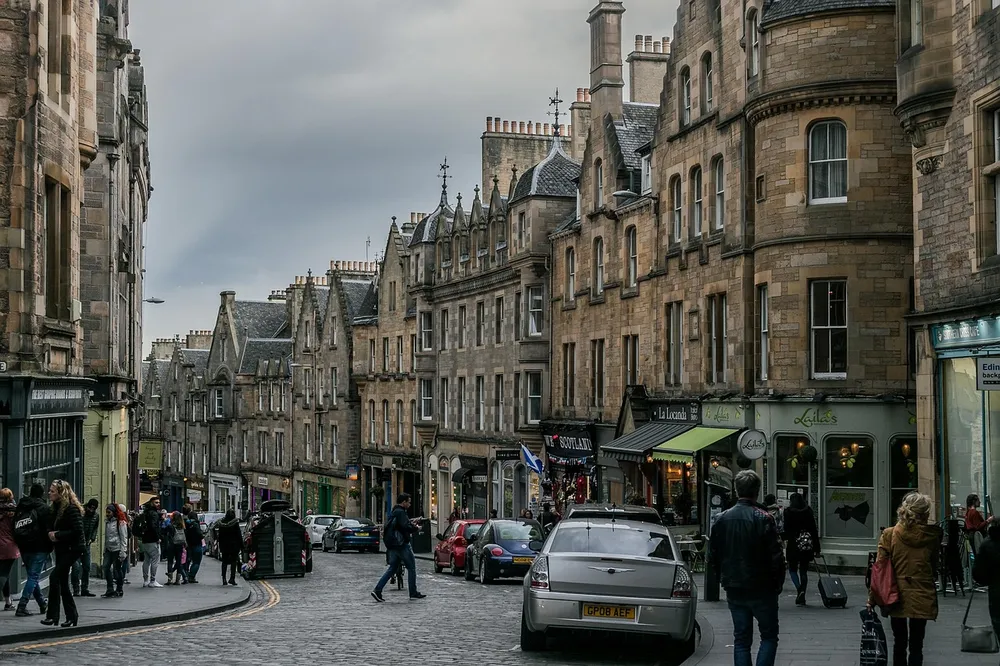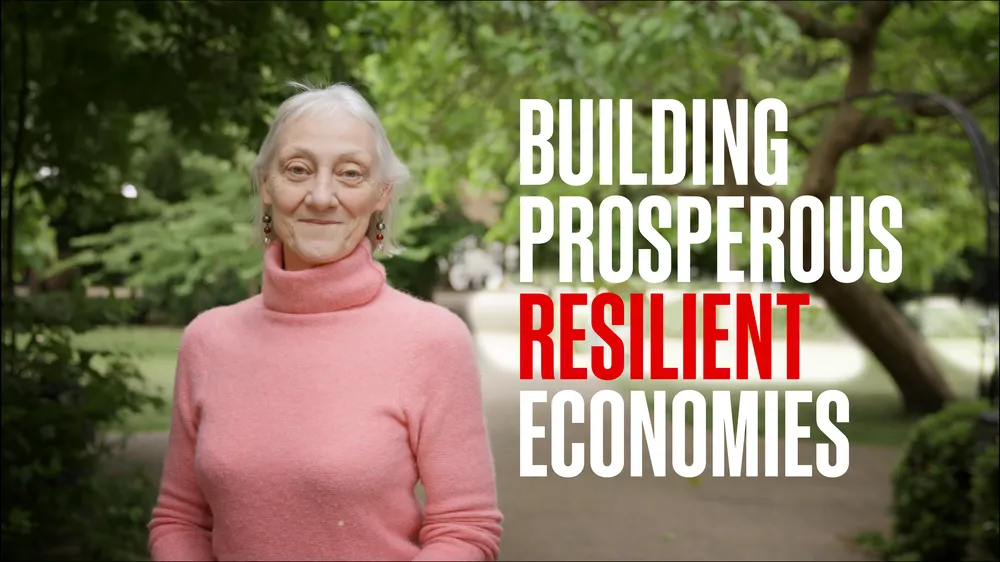New programme aims to build prosperous, resilient economies across the UK
The Churchill Fellowship's new Economy and Enterprise programme supports individuals with ideas to strengthen economic resilience in their communities.
Like all our programmes, it has been shaped by a sector specialist from our Advisory Council, who helps us identify pressing societal needs and focus our support where it can make the greatest difference.
To develop the programme further, we work with a Working Group of Churchill Fellows and other experts with lived and professional experience in the field. Together, they shape a programme’s direction, advise on outreach, and will continue to support Fellows for the programme’s duration.
Our building prosperous, resilient economies programme is open to individuals with new and practical approaches for strengthening economic resilience, whether through enterprise, policy, or community innovation. If your work is rooted in inclusion and impact, this could be your next step.
Setting the context
Lucy Parker, Chair of the Advisory Council, and a Churchill Fellow herself, brings two decades’ experience as a strategic advisor. She frames the purpose behind the new programme.
“The reality is the UK economy doesn’t work for everyone. The question is: How do communities generate economic activity that leads to both resilience and prosperity and, through doing that, often also addresses wider societal challenges?”
Lucy is energised by the possibilities that the new programme opens up. “What is exciting,” she says, “is the range of people and projects this programme could and does attract. From those building up local supply chains or community businesses to individuals creating better financial futures for underrepresented groups. It’s about meeting people where they are, whether they’re innovating from within a system or challenging it from the outside.”
Giving an example, she describes one Fellow who worked on an innovative collaboration with a local council to free up council-owned space for local groups and social enterprises that couldn’t afford commercial rents. The Fellow wanted to create a sustainable, long-term financial model.
Opportunity for more of us
Lucy also highlights the importance of inclusion for marginalised communities – and how the Churchill Fellowship is seeing projects led by, or for migrants, and other underrepresented groups.
“Some people may be landing in communities that don’t know how to host them, so increasingly there are imaginative solutions coming from migrants themselves, working out how to earn a living through matching their skills to local needs.”
She notes that Fellows are finding local solutions that support the circulation of money and resources within communities: “You see all kinds of examples from Fellows. That’s when you can lift the whole community – it works at lots of levels.”
“Almost everyone wants to pay their own way in the world,” she goes on. “It feels really important in the Fellowship to address not just what community action can do, but how economic activity can make a community be more resilient – and from that also flows policy implications.”
Tapping into networks, sparking ideas
The Churchill Fellowship offers space for reflection, learning, and connection, giving people the chance to step back, explore international models, and return with fresh insight and renewed energy.
“When Fellows can study overseas,” Lucy expands, “they can bring back learning that inspires their own work, and make it more visible, which in turn can inspire others.”
The connection between personal experience – the ability to make change happen and the potential for knock-on systemic impact – is central to the Fellowship. Many Fellows bring lived or frontline experience and are deeply rooted in the communities or systems they seek to improve.
Insight from the front line
Grace Harrison (CF 2024) and a member of the Working Group supporting the new programme, is the development lead at Kitty's Launderette, a worker-community co-op in Liverpool. Kitty’s Launderette tackles social isolation, fuel poverty, and supports Real Living Wage jobs. It can be transformative for many – but there’s day-in, day-out pressure to keep all the moving parts of an independent, community-led organisation going.
Grace sees her Fellowship as an opportunity to develop her longer-term policy thinking and leadership skills. “I’ve never really been in a policy space before. We were just ‘doing’. The Fellowship, it feels, is developing this bridge between our lived experience and what’s the best use of time – trying to navigate and plan, or whatever we’re wrestling with at the moment.”
“Doing the difficult and thoughtful work,” says Grace, “to keep people in those jobs, the challenge doesn’t go away when they start to work. You need a compassionate and adaptable approach to navigate those challenges.”
From her research abroad, she saw just how much external conditions shape community-led success: “The take-home message from my [Fellowship] research trip was definitely that the policy environment does really impact how co-ops and social businesses struggle or thrive – though many find a way regardless.”
Community support boosted
Accessible, people-led opportunities are at the heart of the new programme Grace feels. “It will support more people with those questions to find ideas, inspiration and solutions.”
In the background, some UK councils are grappling with rising levels of debt and shrinking resources, trying to keep basic services afloat. In this context, enterprise organisations often act as a bridge for hard-hit communities, especially where opportunities are fewer and communication is uneven.
There’s also a broader national urgency. Across the UK, people are exploring new ways of working, earning, and sharing resources, but often without the frameworks or funding to scale ideas which really work. This programme won’t close the gap alone, but it offers a layer of support by helping change-makers learn from others and build momentum for practical change.
John Barker (CF 2023) and a member of the Working Group, sees the new three-year programme as a valuable step towards tackling one of the hardest challenges in social change: putting ideas into practice and exploring how they might take hold.
Supporting change close to home
John, who is based in Wales, sees real value in how this programme can help individuals navigate the practical challenges of turning ideas into action. “Barriers can be personal, about self-confidence or skills, or they might lie in someone’s professional networks, or even in how accessible the Churchill Fellowship network feels. Others are institutional: the legal environment, local authority frameworks, or how policy lines up with someone’s approach.”
He continues: “Implementation is often the hardest part of social impact work. What’s encouraging about this programme is that it offers time and space to explore how change might take shape in practice.”
Further, he sees opportunity in the growing focus on localism: “Supporting social and economic innovation in your community, especially as more economic power is devolved, feels both timely and necessary. It makes sense to invest in the places we live, whether that’s through economic or social change.”
Find out more about how to apply for a Fellowship on this page.
Disclaimer
The views and opinions expressed by any Fellow are those of the Fellow and not of the Churchill Fellowship or its partners, which have no responsibility or liability for any part of them.







